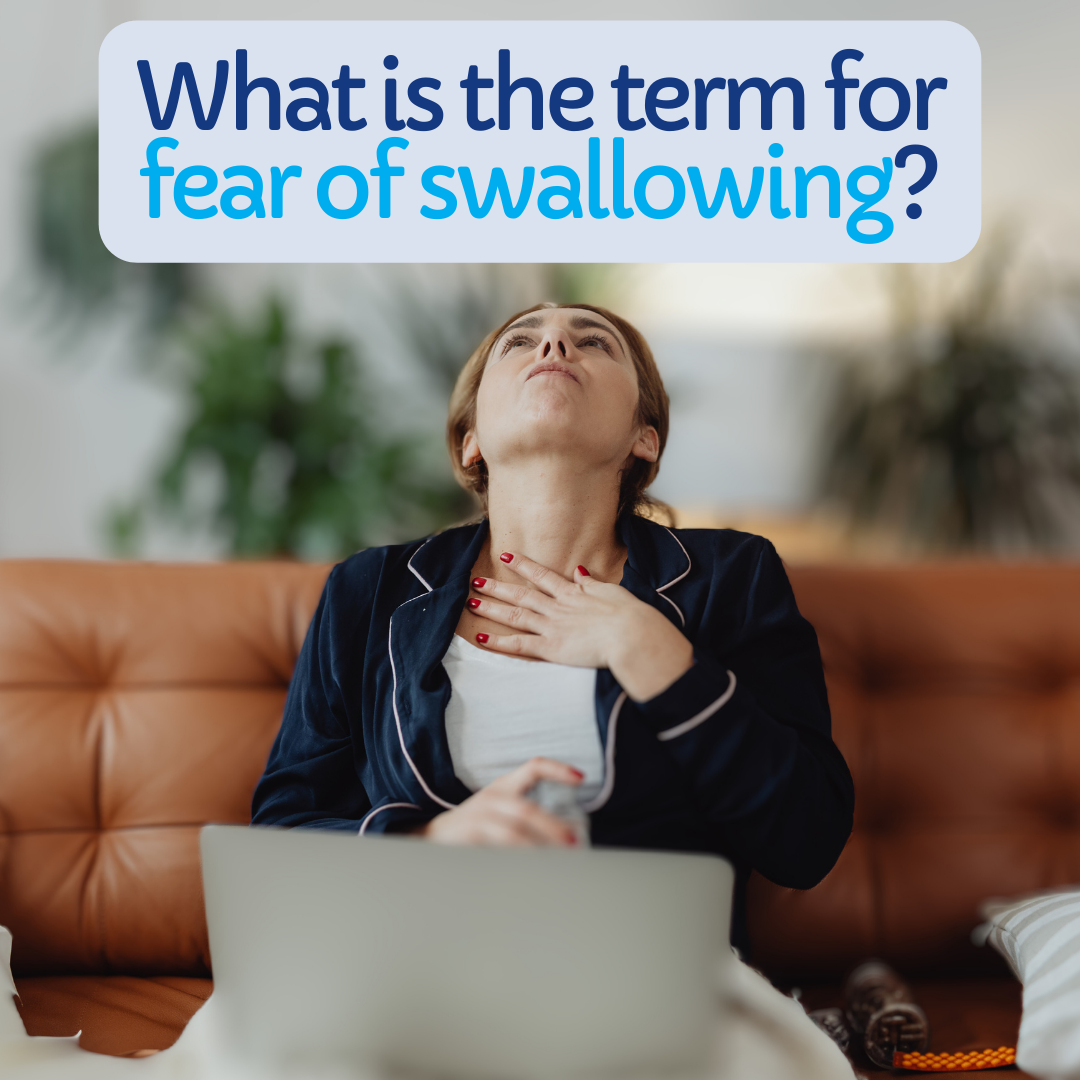Phagophobia, also known as the fear of swallowing, often stems from swallowing anxiety or a traumatic experience related to swallowing. Often the underlying fear is a fear of choking. For individuals with phagophobia, the act of eating can provoke intense eating anxiety, leading to avoidance of food or liquids and severely impacting their overall well-being. This can lead to nutritional deficiencies, weight loss, dehydration, muscle atrophy, and other medical complications. Social isolation is also common due to the difficulty of eating in public settings.
Symptoms and Impact
People with fear of swallowing experience various symptoms, including:

Difficulty swallowing even when there is no physical or structural problem.

Avoidance of certain foods or liquids due to choking anxiety. Persistent and irrational fear of swallowing, which can escalate to total avoidance of food.

Fear of choking or gagging even when eating soft or pureed foods. Gastrointestinal symptoms such as nausea, stomach pain or other digestive issues. Unintentional weight loss and other health complications due to food avoidance.
Addressing Phagophobia Through a Multidisciplinary Approach
Treatment of phagophobia requires collaboration between various healthcare professionals, including otolaryngologists, gastroenterologists, speech-language pathologists (SLPs), and psychologists. SLPs play a crucial role in helping patients regain their confidence through swallow therapy and behavioral techniques. Incorporating highly dissolvable solids in therapy and soft food introduction can be beneficial in gradually restoring the ability to eat without fear. Working with a professional can also help prevent relapse and allow patients to safely progress from soft foods to regular textures, overcoming the psychological hurdles of swallowing fear. With proper treatment, individuals can regain their ability to enjoy meals and improve their quality of life.

Cleveland Clinic Study Shows Benefit of Savorease Crispy Melts to Help Manage Patients with Phagophobia
We are excited to announce that Michelle Adessa, Head & Neck Institute, Cleveland Clinic presented her research looking at the effects of Crispy Melts on reducing eating anxiety for people with phagophobia at the Dysphagia Research Society annual meeting. This research showed how an SLP can use a novel food-based solution to reduce symptoms and increase texture acceptance to help patients progress to a regular diet.

